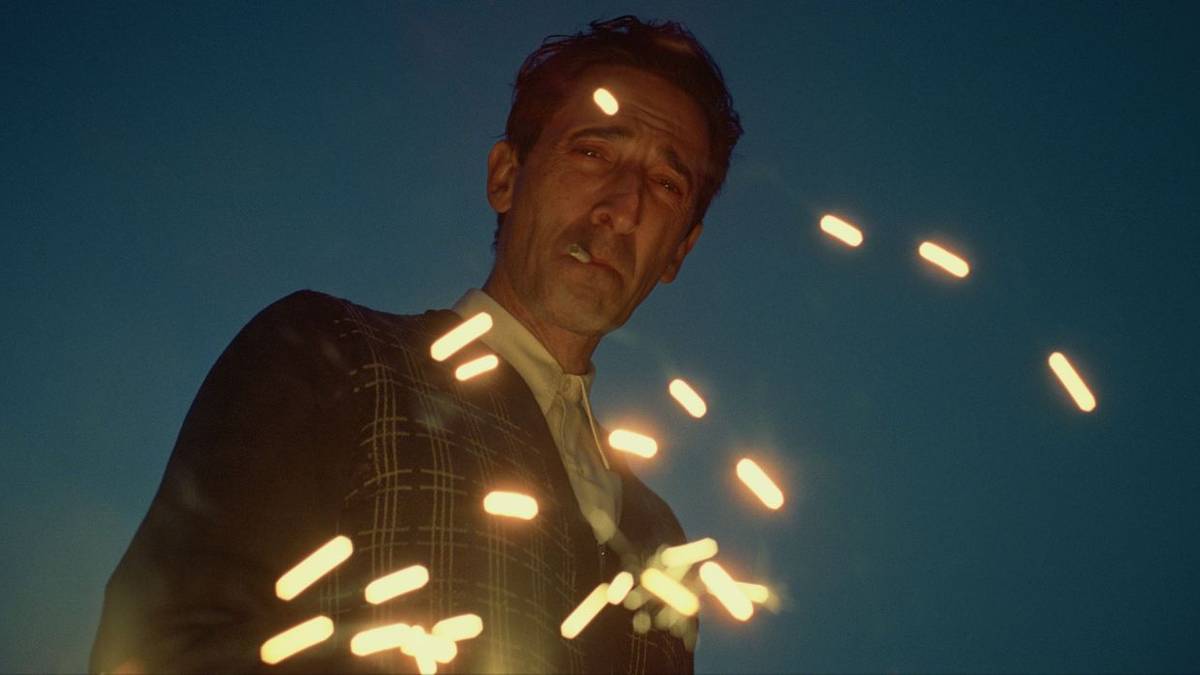Historical epics have been a part of Hollywood’s output since the earliest days of cinema, and even during fallow periods for the genre, there is hardly a year that goes by without at least one epic release. That fact has held true in the 21st century, with two dozen-plus historical epics hitting theaters since clocks rolled over into the year 2000.
Coming from directors like Steven Spielberg, Martin Scorsese and Ridley Scott, many of the best of these epics from the last two-and-a-half decades are among the best of all time as well. Covering wars, slavery, colonialism and everything in between, these films focus on some of the most important chapters in world history while still delivering on the epic scale that audiences come to expect from them. Bigger doesn’t always mean better, but when it comes to dramatizing (or straight-up fictionalizing) historical events, these ten movies from the 21st century absolutely are.
10
‘Lincoln’ (2012)

Daniel Day-Lewis in Lincoln.Credit: Image via Walt Disney Studios Motion Pictures
Focusing on the final, and most consequential, months in the life of one of the most venerated presidents in American history, Steven Spielberg’s Lincoln was a long-gestating passion project for the director. So long was the film’s development that the original actor pegged to play the 16th president, Liam Neeson, aged out of the role, clearing the stage for Daniel Day-Lewis to deliver yet another Oscar-winning performance. Acclaimed by critics and historians alike for his authenticity in bringing Lincoln’s presence to life, Day-Lewis anchors what is another gritty dramatization of history from Spielberg.
Set in the waning days of the Civil War as Lincoln attempts to pass the 13th Amendment, the film captures a fraught time in American history, characterized by a great division in the country that feels dangerously relevant to today’s political landscape. With key moments depicting contentious debate in the House of Representatives as well as Lincoln’s skills as a powerful orator and negotiator, the film also offers a sterling example of the ideals we can strive for in our democratic experiment.
9
‘RRR’ (2022)
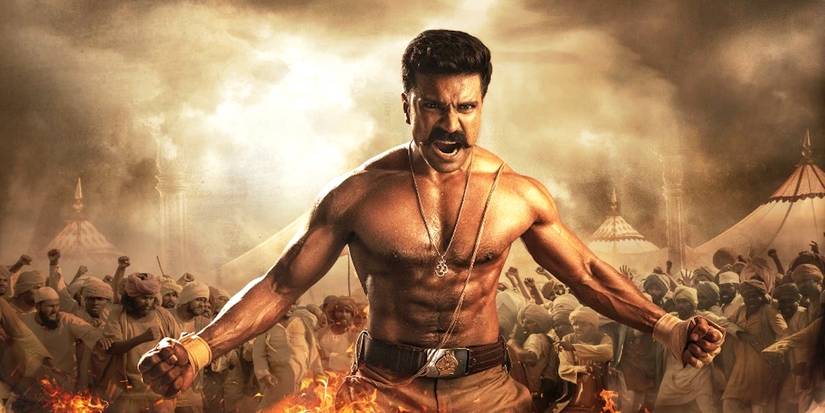
Ram Charan shirtless and flexing his muscles in Indian action movie RRRCredit: Image via Pen Studio
Proving that historical epics need not be staid, Indian epic RRR depicts a completely fictionalized account of real-life revolutionaries that’s replete with high-octane action, explosive visual effects and musical numbers. It’s a historical epic by way of blockbuster entertainment that makes Hollywood look flaccid in comparison. Set during British colonial rule of India, the movie paints, in the broadest of strokes, a revolutionary fable that imagines the meeting of two Indian folk heroes as they take the fight to their jackboot oppressors.
RRR took the world by storm, becoming the third-highest-grossing Indian film and bringing international attention to Telugu-language movies. It also left most American action movies in the dust with its completely earnest approach to over-the-top action and visuals. There’s no snark or meta-references to be found in RRR, just pure historical escapism delivered in an epic package.
8
‘Kingdom of Heaven’ (2005)
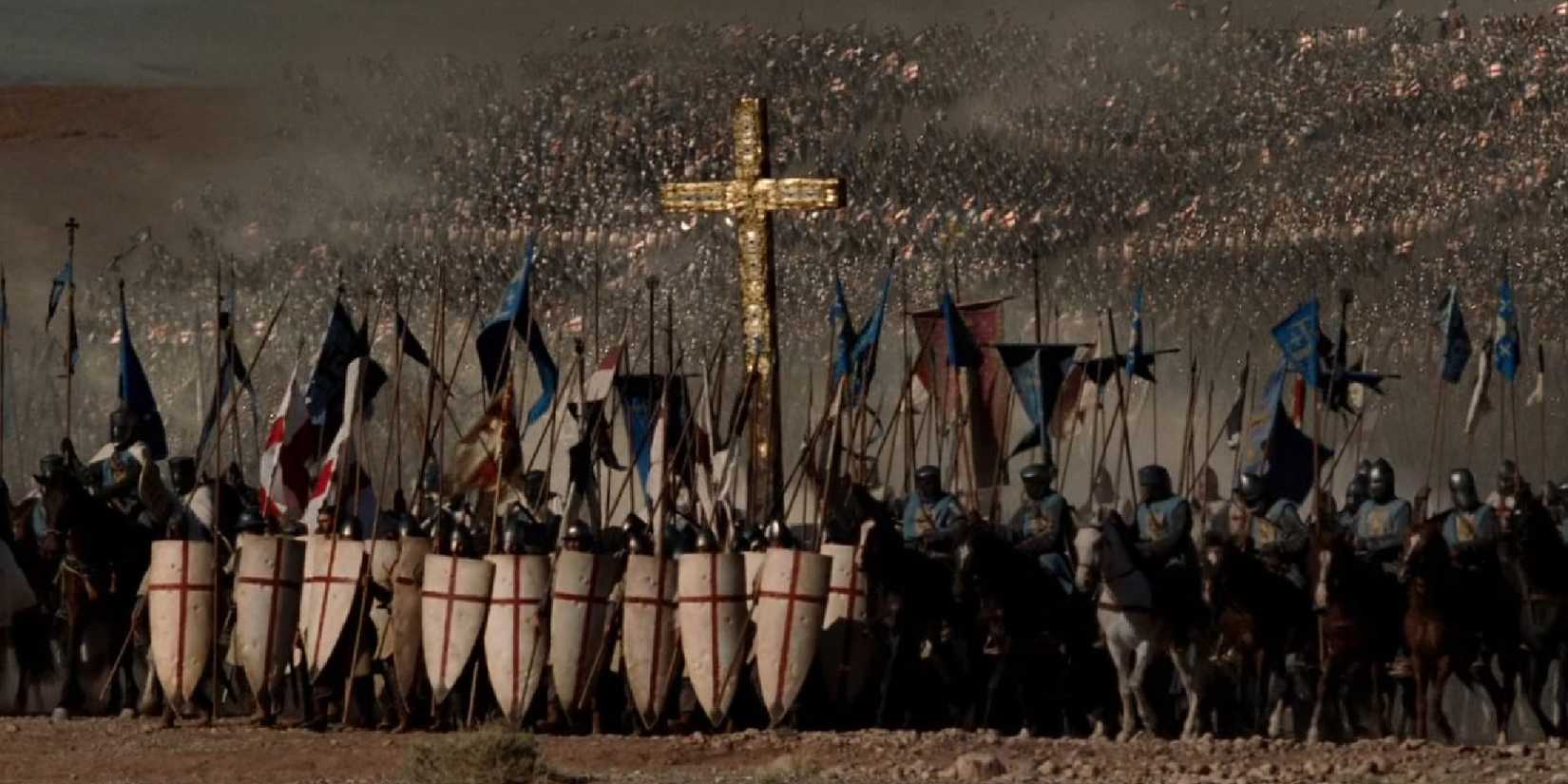
Crusaders in Kingdom of HeavenCredit: Image via 20th Century Studios
Ridley Scott kicked off a renaissance of historical epics in the new millennium with Gladiator, and he’s continued to play in that sandbox with a sequel to that film and others like Napoleon and The Last Duel. His best historical film of the 21st century, however, is the Crusades-set war epic Kingdom of Heaven. Far from historically accurate but undeniable as oversized entertainment with an edge, the film earned a mixed reception when it first premiered, but was reappraised upon the release of the extended director’s cut, which gave it a more complete narrative with greater depth to its characters.
Starring Orlando Bloom as a fictionalized version of Balian of Ibelin, the film covers a lot of ground, historically speaking, including several crucial battles and the siege of Jerusalem. Kingdom of Heaven has no shortage of violent combat on a large scale, which Scott has always excelled at. This underrated epic is a brutalizing experience of medieval war that, when viewing the correct cut, leaves a big impression.
7
‘The Brutalist’ (2024)
Brady Corbet’s towering drama of the immigrant experience in America, as depicted through the eyes of a Holocaust survivor, is a harrowing and epically long experience steeped in the filthy waters one must wade through to reach the American Dream. In his second Oscar-winning performance, Adrien Brody plays Laszlo Toth, a Hungarian-Jewish architect who comes to America with the hopes of building a new life, only to face violence, anti-Semitism, and further indignities at the hands of American capitalists.
Shot using the VistaVision, which was developed in the same time period as the film is set, The Brutalist is as meticulously designed and visually striking as the titular architectural style of its protagonist. It’s an uncompromising and assaulting vision of the immigrant experience that is inextricably linked to current events and anchored by another soul-shattering performance by Brody.
6
‘Letters from Iwo Jima’ (2006)
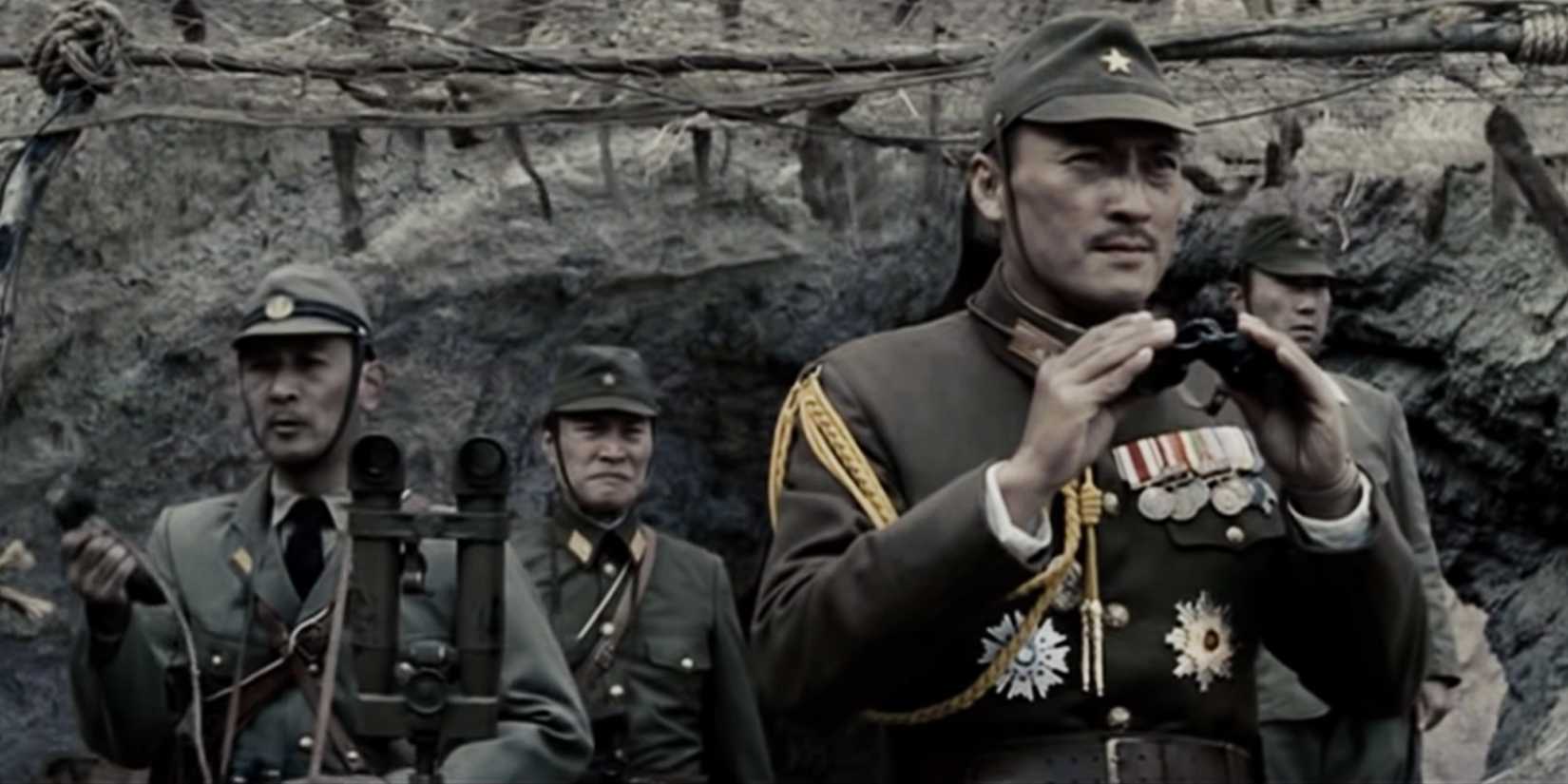
Ken Watanabe in a military uniform stands with others outside a dirt bunker in Letters From Iwo Jima.Credit: Image via Warner Bros.
Shot back-to-back with Flags of Our Fathers, Letters from Iwo Jima was director Clint Eastwood’s companion piece that focused on the Japanese side of the infamous battle on the titular island and was ultimately the more successful and powerful of the two films. Featuring Eastwood’s typical emotional restraint in portraying the historical events, the film provides a sensitive and thoughtful portrayal of the Japanese soldiers, who are caught in an unwinnable situation, which is still uncommon among Hollywood WW2 films.
Featuring a majority cast of Japanese actors, led by Ken Watanabe, performing in their native language, the film is far more authentic and sensitive in its portrayal of its soldiers, recognizing the commonalities between all those who serve their respective countries. It’s an anti-war epic that isn’t afraid of digging into the complexities of its subject matter, while also recognizing the inherent loss of armed conflict that leaves deep generational scars.
5
‘Killers of the Flower Moon’ (2023)
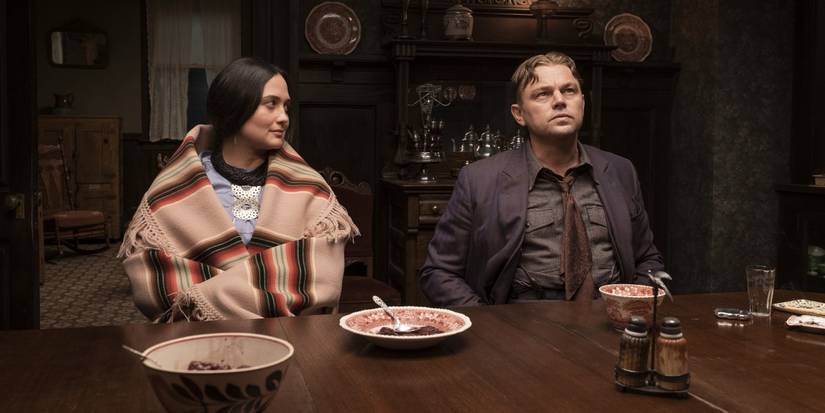
Lily Gladstone as Mollie Burkhart and Leonardo DiCaprio as Ernest Burkhart sitting at a dinner table in Killers of the Flower MoonCredit: Image via Apple TV+
Capturing a murderous reign of terror perpetrated against the Osage Nation by those who lived among them, Killers of the Flower Moon was legendary director Martin Scorsese’s first Western. It inverts the savagery between white and indigenous cultures that had dominated the genre since its inception. It’s another compelling historical epic from a director who has perfected the art of depicting despicable criminals. The non-fiction novel of the same name by David Grann, on which the film is based, presents the murders of Osage people across several decades in Oklahoma as a means to gain access to their valuable mineral rights, as a mystery to be solved. Instead, the film identifies the killers up front.
The ability of these violent men to commit such atrocities is not presented as some well-executed conspiracy, but rather an incompetent massacre made possible by the ignorant racist systems of power within the American government. This is all beautifully synthesized through the lead performances of Leonardo DiCaprio as the reprehensible coward Ernest Burkhart and Lily Gladstone as his long-suffering wife Mollie Burkhart, whose resilient dignity and determination are the heart and soul of the film.
4
‘Oppenheimer’ (2023)
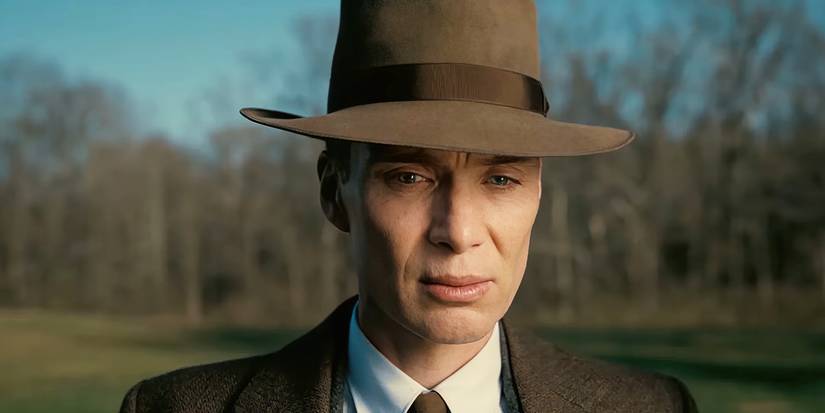
Credit: Image via Universal Pictures
A biographical epic by way of a taut thriller, Christopher Nolan’s Oppenheimer may be the ultimate example of the director’s melding of meticulous design and philosophical pondering with four-quadrant entertainment value. Dramatizing the life of J. Robert Oppenheimer, the father of the atomic bomb, with heavy focus on his consequential work in Los Alamos as part of the Manhattan Project, the film is a character study of guilt and human reckoning built on an epic scale befitting its subject matter.
Cillian Murphy, in his first lead role for Nolan, won a well-deserved Oscar. Here, he leads an all-star cast and grounds the film’s grander themes with an existential burden that he wears in the creases of his face, especially in the more objective scenes of the film. One of the greatest masterpieces of the last five years, Oppenheimer is Nolan’s crowning achievement that anoints him the new official king of epic filmmaking.
3
’12 Years a Slave’ (2013)
.jpg)
Chiwetel Ejiofor as Solomon Northup on a plantation in 12 Years a Slave.Credit: Image via Searchlight Pictures
As many American epics deal with dark chapters of the country’s history, there is perhaps no chapter darker than the near hundred-year span of the institution of slavery, and no recent film tackles it with such unflinching artistry as Steve McQueen’s 12 Years a Slave. It’s a blistering portrait of Solomon Northup, whose memoir detailing his kidnapping and subsequent selling into slave labor served as the film’s basis. Now, it remains a vital and necessary narrative in the modern era, where many political voices attempt to downplay the generational trauma of slavery.
Chiwetel Ejiofor is given his biggest role to date as Northup, and the actor is unforgettable, embodying the man with the kind of inner strength many modern audiences could hardly even fathom being able to possess under such dire circumstances. His performance, and the film as a whole, demands an empathy from viewers that has remained in shockingly short supply in the century-plus since the events of the film took place.
2
‘There Will Be Blood’ (2007)
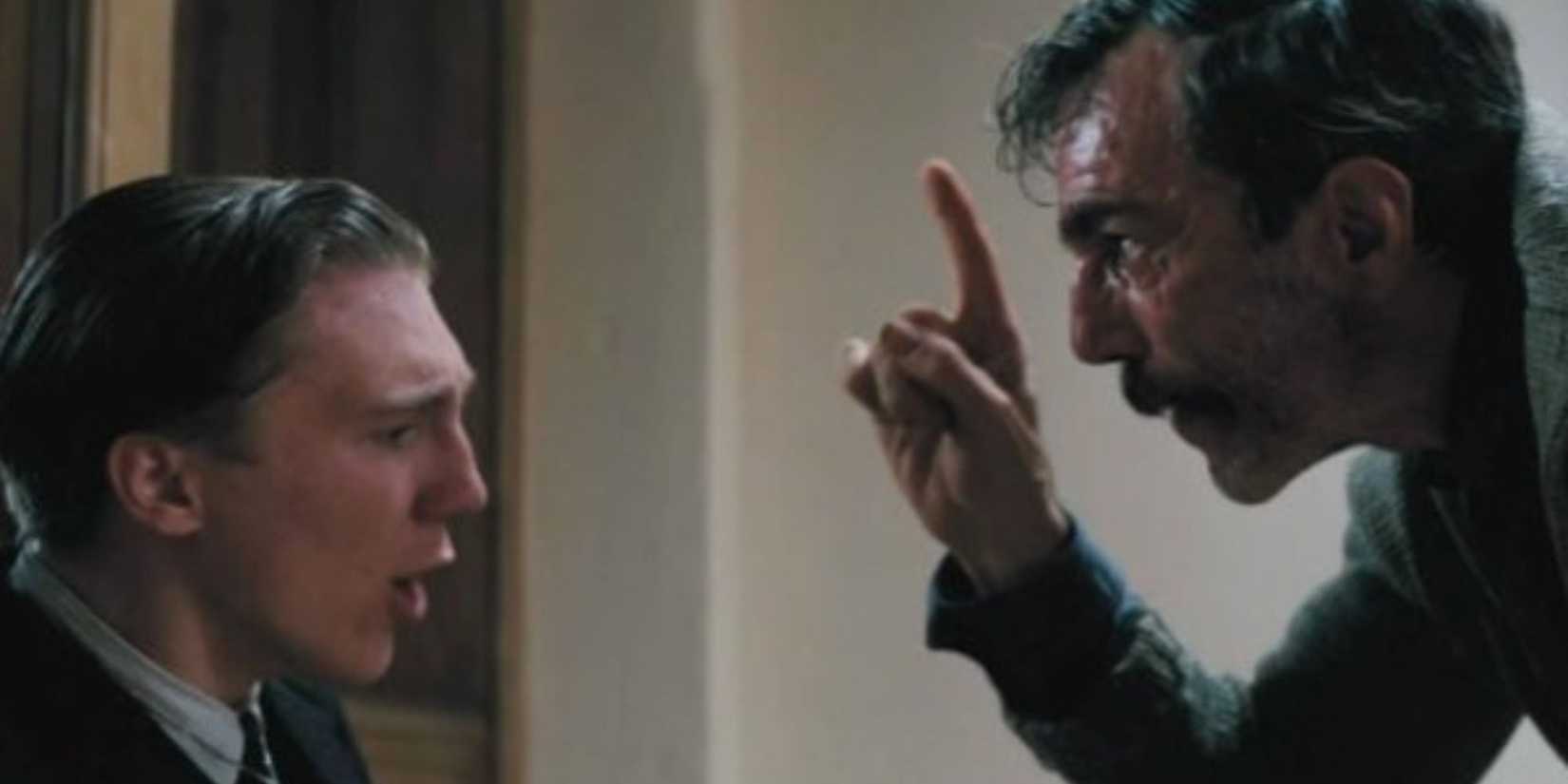
Daniel Day-Lewis and Paul Dano arguing in ‘There Will Be Blood’ (2007).Credit: Image via Paramount Vantage
Paul Thomas Anderson’s career has a number of epics concerned with the corrosiveness of American exceptionalism, such as his porn industry drama Boogie Nights or the religious cult tragedy The Master. Alas, none is as incendiary as his oil-fueled tale of greed, There Will Be Blood, starring Daniel Day-Lewis as an oilman whose lust for black gold leaves him wealthy but lacking a soul. It’s potent filmmaking on an epic scale that delivers a true modern masterpiece.
As Daniel Plainview, Day-Lewis channels the vocal mannerisms of director John Huston to project the power and confidence with which the character operates. It’s the greatest performance in a career of great performances, one that carries on the lineage of other dark protagonists consumed by the need for power, like The Godfather‘s Michael Corleone and Citizen Kane‘s Charles Foster Kane. He’s the quintessential American protagonist for a quintessential American classic.
1
‘Master and Commander: The Far Side of the World’
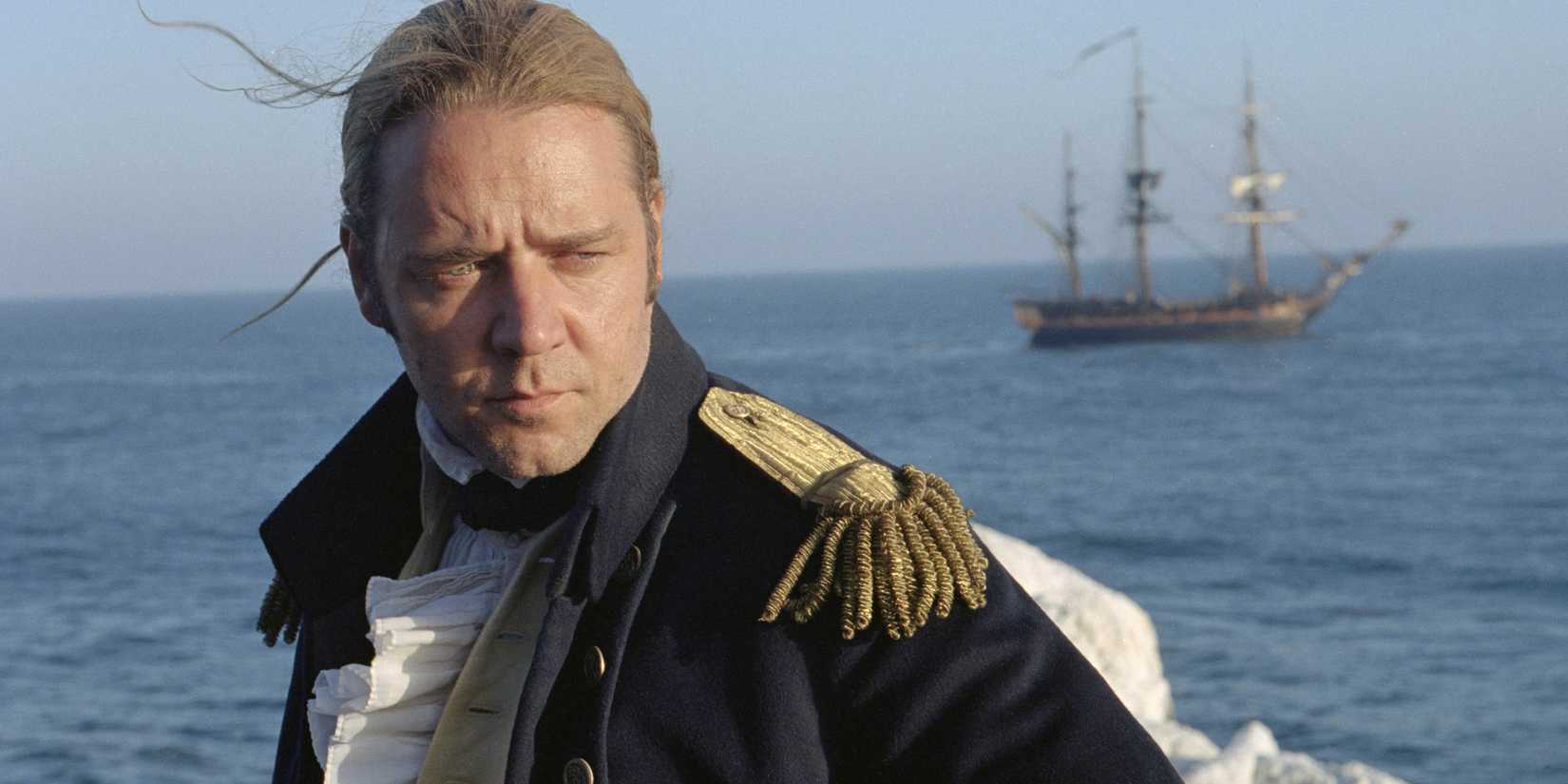
Russell Crowe at sea and there’s a ship in the backgroundCredit: Image via 20th Century Studios
A sea-faring epic set during the Napoleonic Wars, Master and Commander: The Far Side of the World was based on the novels of Patrick O’Brian and meant to launch a new film franchise, but the lackluster box office haul in comparison to the more fanciful swashbuckling of The Pirates of the Caribbean ran it aground. That’s an epic-sized travesty as the film is an evocative depiction of life in the Royal Navy, punctuated by gritty battle sequences and a commanding lead performance by Russell Crowe.
While the film has found continued praise from audiences who have rediscovered it on streaming, particularly men of a certain age who respond to its historical setting and theme of male camaraderie, it hasn’t been given the full retrospective respect that it deserves. Director Peter Weir balances epic-sized entertainment with thoughtful character examination in a blockbuster that never attempts to reduce its well-observed storytelling to capitulate to the audience’s desire for escapism. It’s a historical epic that should not be lost in the sea of lesser streaming efforts.

